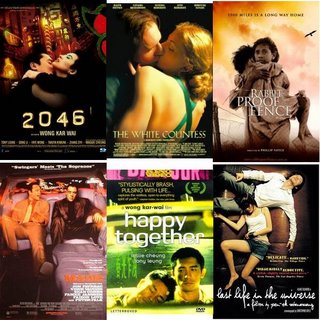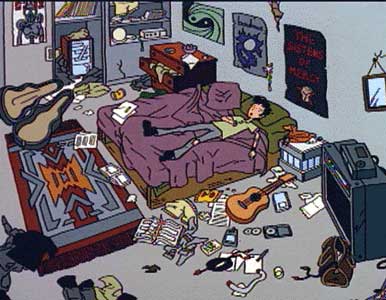
Christopher Doyle has been called the greatest cinematographer working in the movies today and also the most idiosyncratic, and is known for his perfectionism and eccentricity. I first came under the hypnotic spell of his lens when I realized that my love for Wong Kar-wai's movies had almost as much to do with Doyle's involvement with them than anything else (indeed, some wonder if Doyle hasn't been more integral to the success of Wong's films than Wong himself). Credited with essentially inventing the dominant vernacular of pan-Asian pop with Wong Kar-wai, and responsible for some of the most stunning images in modern cinema - blurry, frenetic street scenes, retro-styled couples in delirious clinches, grand historical vistas set off by swathes of saturated color - Doyle has developed a certain signature that is unique. He has the uncanny and apparently effortless talent to easily bathe his images in lush, almost supernaturally beautiful, colors and lights, but is also equally adept at catching the harsh and jarring fluorescence of a neon-drenched and essentially lonely and isolated urban existence, often in the same frame. Known for using extreme angles and vanguard color grading, his camera can be both an impassive observer of great and scattered urban and natural landscapes, and also a gentle voyeur probing into the deepest privacies of his subjects resulting in iconic portraits of sorrow and solitude.
Doyle's own life is as exciting as any epic blockbuster; brought up in suburban Sydney, he left Australia at the age of 18 to join the merchant navy. After three years traveling the world on a Norwegian ship, he came ashore again, and lived in India (working as an oil driller), Israel (cow herder) and Thailand (doctor of Chinese medicine) before gravitating to Taiwan, where he shot his first 35mm film, Edward Yang's That Day on the Beach, for which he won the Best Cinematography Award in the 1983 Asia-Pacific Film Festival. He now lives in Hong Kong, and considers himself to be an honorary Asian.
Here is the voice of the master himself, culled from various interviews over the years.
"Anybody who works with me knows what shit they're in for. They know he's had a beer for breakfast. They know he doesn't give a shit about certain technical aspects. They know he's a little bit out of synch, and he'll probably throw a spanner in the works. Or why would you bother calling me?"
"That (realizing that he was a professional cinematographer) scared the shit out of me. We were just playing around before. So I ran away to France to try and learn competence, and I realised it was all bullshit. You only need a little bit of technical knowledge. Most people can get it in a couple of months. The training of the eye is the real job, and that takes forever."
"I think if you get one image per film that actually works, it's better than average. Who's going to forget Maggie Cheung walking up those stairs (in In the Mood for Love)? Everything else is working towards that; it is a consolidation of ideas into an image."
"You make more mistakes. That's the point. You engage with your mistakes. You have to learn faster, quicker and more often and you'll never learn enough and you never get self-complacent. You know that learning is a never-ending process and you know that you never know enough. You trust things like intuition, or integrity, or character or light."
"Hollywood reminds me why I want to do Asian cinema. I think love is a cultural event. Language is a cultural experience. The films we make come from the culture we feel comfortable engaging with."
"I started making films in Asia, in Taiwan. I started making Chinese-language films so, yeah, I regard myself as a Chinese filmmaker, but I just happen to be white, or pink, actually. It's kind of like a delayed adolescence. I feel I grew up there. I was in my thirties by the time I was growing up. I still haven't grown up. It's just more familiar."
“I usually say that the three of us — that means the art director, William Chang, Wong Kar-Wai, and myself — are a menage-a-trois. It’s a very comfortable and incestuous relationship. Over the years, there’s developed a great deal of complicity and trust. We’re stuck with each other basically. Our visual taste is so similar now.”
"I’m a great fan of jazz music, and as you can see Wong Kar-Wai is obviously quite interested in different kinds of music. I think, at last, we get into—well, what I’ve always dreamed of doing is making films, like jazz music, just jamming. That’s very much how we work. It’s really like a jam session."
